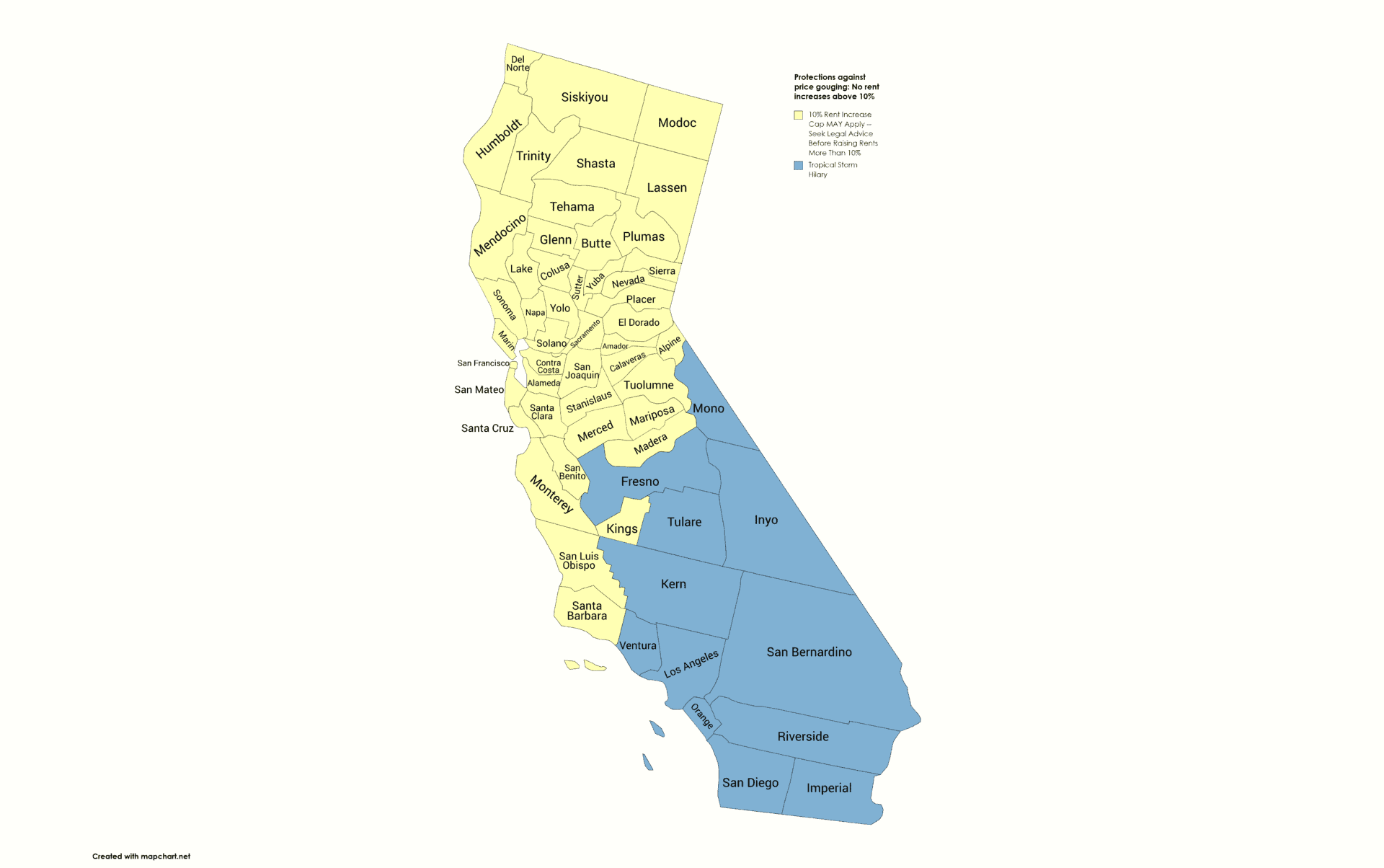Twelve California counties are under a state of emergency, with a related cap on rent increases, in response to Tropical Storm Hillary.
On Aug. 19, anticipating the impact of the storm, Gov. Newsom proclaimed a state of emergency for 11 counties. Those counties are Fresno, Imperial, Inyo, Kern, Los Angeles, Orange, Riverside, San Bernardino, San Diego, Tulare and Ventura. While meeting with local leaders as the storm made landfall Aug. 20, the governor declared an additional emergency for Mono County.
The governor’s emergency proclamation has triggered Penal Code Section 396, the state’s anti-price gouging law. This law makes it illegal to increase the price of many consumer goods and services, including rental housing, by more than 10% above pre-emergency levels. Such rent increase limitations apply to existing tenants and to unit turnover.
The state of emergency and the accompanying protections against price gouging for the 11 counties included in Saturday’s initial emergency proclamations are set to expire on Sept. 18, 2023, and the additional state of emergency for Mono County issued on Sunday is slated to expire on Sept. 19, 2023. Both emergency proclamations and the accompanying protections against price gouging may be extended.
Anyone convicted of violating the statewide anti-price-gouging law can face a year in county jail, a fine of up to $10,000, or both, as well as civil penalties. Local ordinances may impose additional penalties.
As a reminder, CAA does not currently track emergency declarations issued by local officials. Declarations of local emergencies issued by cities and counties also trigger the price-gouging limitations of Penal Code Section 396. For local declarations of emergency, it is best to check with the applicable local authorities.


